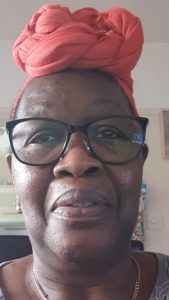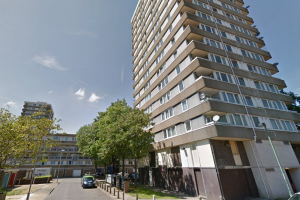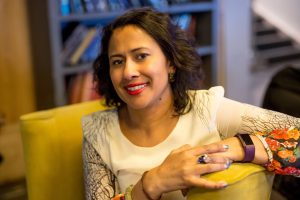Jennifer Hastings, Equality, Diversity & Inclusion Manger here at King’s College London reflects on the 2nd anniversary of the murder of George Floyd.
Today marks the anniversary of the murder of a Black man, George Floyd, by a white police officer. George Floyd was not the first (or last) victim of police brutality, however his death acted as a catalyst for protests and campaigns across the world. Organisations and brands joined in, many making a financial commitment or enacting race equality action plans with renewed vigour. Popular narrative also changed, as people with influence developed a greater understanding of what it means to be “anti-racist” (and how it’s not just a synonym for “not being racist”).
King’s senior leadership team released a statement committing them to addressing racism at King’s, and we developed a Black Lives Matter Plan as a sub-section of our Race Equality Action Plan. As EDI manager, and a white woman, I recognise that there is still a lot of work to do. I also acknowledge that King’s does not exist in a vacuum but in a world built on systemic racism where, in many parts of the Western world, whiteness is the invisible status quo. Campaign zero has developed a live tracker that puts into stark focus how pervasive police brutality is across America and, in recent events closer to home, a 15 year old Black school-girl was strip searched by police prompting a safeguarding review that concluded “racism was likely to have been an influencing factor.” We saw the Covid19 pandemic disproportionately impact Black and Asian people and extensive research illustrates how Black, Asian and Minority Ethnic communities are more likely to experience various forms of poverty, from overcrowded accommodation to unemployment. The ethnicity pay gap persists yet organisations are not currently required to report on it in the same way as they are for gender.
Back in 2020, so many people promised to do better. Fast forward two years and there’s still resistance to the term “white privilege” and questions of whether race equality work is even necessary. Only last week the Chief Executive of Advance HE wrote a piece in defence of its Race Equality Charter following criticism of “egregious wokery”. I’m sure there are various reasons why someone may denounce the existence of racism, however the term “white fragility” seems particularly apt. In a paper published in the International Journal of critical Pedagogy in 2011, Robin DiAngelo defines white fragility as “a state in which even a minimum amount of racial stress becomes intolerable, triggering a range of defensive moves. These moves include the outward display of emotions such as anger, fear, and guilt, and behaviors such as argumentation, silence, and leaving the stress-inducing situation. These behaviors, in turn, function to reinstate white racial equilibrium.”
The work to be anti-racist, both as an individual and as an organisation, was always going to be challenging. Raising awareness has its place but we mustn’t shy away from the less palatable side of activism. Alicia Garza, one of the co-founders of the Black Lives Matters movement reminds us that “Every successful social movement in this country’s history has used disruption as a strategy to fight for social change.” And, in the midst of the hashtags, we mustn’t forget why Black Lives Matter was set up; Trayvon Martin was 17 years old when he was killed by George Zimmerman, who was found not guilty. His mother, Sybrina Fulton said: “I want the world to know that my son was unarmed and he was 17 years old. He wasn’t committing any crime. Trayvon’s only crime was the color of his skin … which is not a crime.”
The ability to debate the existence of racism is a marker of white privilege and, for many members of the King’s community, the anniversary of George Floyd’s murder will be a particularly difficult time. If you teach, consider how a student’s engagement with their course may be affected. If you line manage people, be mindful of how this day may impact the mental health of your team.
Students can access support via the Counselling and Mental Health Support Service and staff can access the Employee Assistance Programme. We recognise that these services may not meet the needs of everybody and have signposted to further options below.
- Black Minds Matter UK is a registered charity that connects individuals to Black therapists. Their aim is “to make mental health topics more relevant and accessible for all Black people in the U.K., removing the stigma and remodelling the services to be relevant for the Black community.”
- The Lambeth and Southwark branch of Mind has a directory of mental health services that you can filter according to your requirements, including to connect with counsellors who share the same ethnic background with you
- Rethink has a Black, Asian and Minority Ethnic factsheet that includes a directory of services
- For those who want to educate themselves further, take a look at our anti-racism resources
Want to Learn more about Equality, Diversity & Inclusion at King’s College London?
- Found out more by visiting our Equality, Diversity & Inclusion at King’s pages.
- Follow us on Twitter.
- Email the team at diversity@kcl.ac.uk


